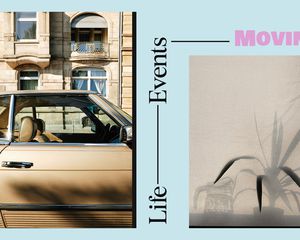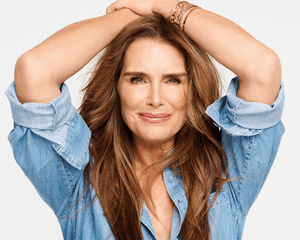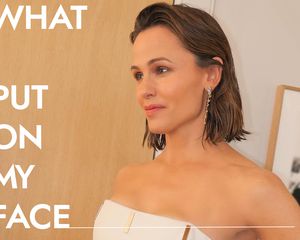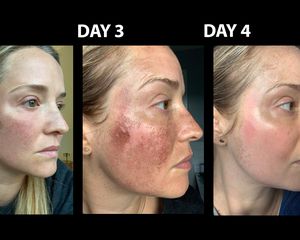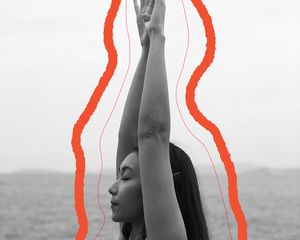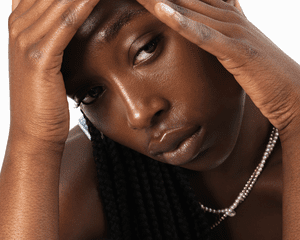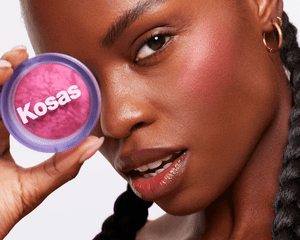As the novel coronavirus began to permeate all ends of the earth, so too did our understanding of its impact at a pace that was somehow both reticent and overwhelmingly hurried. Fear of the unknown was a virus in and of itself, throwing humans into panic mode as grocery store shelves began to empty, one roll of toilet paper at a time. The swell of chaos eventually dissipated into a reverberating chaotic monotony—excruciating and stagnant all at once. But hold the magnifying glass a bit closer to our communities, and the pervasive tedium doesn’t apply: there’s the nurse who’s panicking over a low oxygen supply, the restaurant owner who’s shuttered his decade’s-old business for good, the wife who’s now a widow… we’ve all been affected by the pandemic, but certainly not to the same degree. Though regardless of the varying magnitudes, post-traumatic stress has reared its ugly head at an unrelenting rate.
According to a recent study, the COVID-19 pandemic is classifiable as a traumatic event of exceptional magnitude that transcends the range of normal human experience with exposure to risk of death. In other words, if you’re feeling heightened stress and anxiety, these are normal reactions to an exceedingly abnormal situation. However, this is escalated when our anxieties begin to consume us: “Our brains love patterns and make a lot of assumptions,” explains Dr. Patrick Porter, neuroscience expert and creator of BrainTap. “This is both good and bad. Most of the time it’s good because it helps us in our daily functions. But it can turn bad quickly when our thoughts are consumed with negative outcomes. The PTSD brain will start to see its triggers everywhere. This can lead to a phobic response even to the simplest things.” He estimates that at least 20% of the population is already exhibiting some form of PTSD related to the pandemic, and 80% are likely experiencing generalized underlying stress and fear relating to the pandemic and current world events. "It can be just a matter of time before an emotionally-charged event triggers PTSD symptoms,” he explains. It’s difficult to measure exactly how much of the population is exhibiting symptoms of PTSD because A. not everyone has reported symptoms and B. while symptoms of PTSD can manifest quickly following the trauma, for others, reactions may take years to develop—it’s all quite situational, says to Dr. Robert Kiltz, board certified physician and author of Daily Inspirations.
While cognitive behavioral therapy, medication (taken in conjunction with doing the work to identify the underlying psychological mechanism that triggered your symptoms), and holistic modalities like acupuncture and pulsed electro-magnetic frequency machines can be effective forms of treatment, there’s something to be said about the growth made while therapizing your trauma, which can serve as both a process and an outcome. “Post Traumatic Growth is not the opposite of Post Traumatic Stress, but can be experienced alongside it,” says Dr. Margie Warrell. “As is said in coaching, breakdowns precede breakthroughs. The larger the breakdown, the more transformative the potential breakthrough.” Through this growth, she notes that some potential outcomes include stronger self-esteem, more meaningful and authentic relationships, and a greater appreciation of "the little things" and of life itself. Regardless of the treatment modality, the most important thing is knowing when to turn to treatment. "If you’re feeling paralyzed or unable to engage in life, you need to control so much about your day to avoid certain stimuli, or you see you’re just not coping as well as others, it’s a good time to check-in with a mental health professional,” says Kitz.
It’s easy to be consumed by our own personal bubbles (or pods, whatever you want to call them) during this time as our access to the outside world is relegated to the confines of our digital screens, but it’s important to be aware of how deeply this one common enemy has affected the population, especially those who have experienced marked trauma. By understanding their struggles, we can be better allies, friends, and neighbors. Below, ER nurses, a new mom, small business owners, women from marginalized communities, and several others share their raw, emotional stories.
Morgan D., ER nurse
Honestly, at the beginning of the pandemic, everything was so new, and we were learning each day. We were scared, but we knew we were the ones entrusted to potentially save many lives from this horrible virus. The most difficult aspect to process was how much death we were seeing. Of course, working in an ER, you see death from time to time, but nothing even remotely close to this. It was hard to process that we weren’t enough or no matter what we did we couldn’t save everyone. Now, we still haven’t gotten used to seeing young, healthy people get extremely sick, and I don’t think we ever will. I specifically remember feeling so supported by the community, and now, it almost feels as if they forgot the 7 p.m. applauses and are just resuming business as usual. All of us came into this ready to fight and now I can see the fatigue on their faces as we see yet another person get intubated and how it doesn’t seem like there is an end in sight. It never gets easier to see patients slowly dying without their family by their side. It pains me to have to FaceTime a family member to watch their loved one pass with just a mere stranger next to them.
This has immensely affected my everyday life. I have always been considered a strong person by myself and others, but really over the past couple of weeks, I’ve really been feeling the weight of this past year. I am scared to go literally anywhere for fear that I’ll contract the virus and spread it to the few loved ones I see. I luckily haven’t had dreams about being in the hospital, but I’ve had countless dreams that I am in a very crowded area without a mask and I panic. My sleep has definitely suffered through all of this. Like I said previously, I consider myself very mentally tough, but I’ve found myself much angrier than I ever have been. I have little tolerance for people who do not want to abide by guidelines, including my own family members. I am not one to express my emotions, so people close to me assumed I was doing alright, but recently, I’ve let my guard down, and they realize that I am not even close to alright. I don’t feel as lighthearted as I once was prior to the pandemic.
I want people to know that we are human and have gone through hell over the past year. I want people to know that kindness goes a long way and to be patient with us.
I want people to know that we are human and have gone through hell over the past year. I want people to know that kindness goes a long way and to be patient with us. I know it is immensely stressful being a patient, but please keep in mind that we are doing our best. It is a long road ahead, but with the kindness of others, it will help us heal. I love being a nurse and wouldn’t trade it for the world, but we are tired and we don’t want to hold another hand alone in full protective gear as they slowly die without a family member there. It sounds morbid, but it is the truth.
Eden Gilliam, founder of Eve Milan
I feel that the pandemic was a blessing in disguise to the BLM movement. Being that the world almost stopped due to the pandemic, people had the opportunity to see exactly how many people stand with BLM. This would have never been so profound if it wasn’t for the pandemic. People had no choice but to sit and watch with no distractions, which was unfortunate, but powerful. In the same breath, it was truly disheartening to see how many people questioned and pushed back against a simple idea of a Black life being valued. It made me question a lot of people. I work with a very diverse clientele in Westchester County. It made me very uncomfortable to have to think which side of the coin some of my favorite clients stand on. Are people that I have been working with for years, working in their home and showing pictures of my children to, the same people who push back against Black Lives Matter and racial justice? I like to keep things separate, but it’s hard and it’s a challenge for me to see how people sweep things under the rug and explain away and try to justify injustice.
I have super intelligent friends, so we talked a lot, which helped with the anxiety I had at first. I also spoke with a therapist virtually and did live chats on IG Live to share that experience and allow women to ask questions and open up a safe space for everyone to talk, because we all needed it. Depression and anxiety have many faces and it looks different for Black women. I wanted to share what I was learning as I was going through my own challenges.
Depression and anxiety have many faces and it looks different for Black women.
These past 10 months have been eye-opening and draining, heart-warming and heart-breaking all in the same breath. One thing I will say is that as a Black woman, I’m so tired of fighting and wearing a cape. I’m tired of being the caretaker, the protestor, the organizer, the shoulder to lean on, the friend, the mother, the business owner. During this time, I was stripped of so much and burdened with so much that I just want to be me. A woman that says, "No, this is too much, I’m emotionally drained" and be okay with not being superwoman and all things to all people and just focus on being well and taking care of me. I’m unsubscribing to being the front line worker and at the front of the protest. I'm unsubscribing from trying to save the world. I just want to save Eden.
As a Black woman, I’m so tired of fighting and wearing a cape. I’m tired of being the caretaker, the protestor, the organizer, the shoulder to lean on, the friend, the mother, the business owner.
:max_bytes(200000):strip_icc()/ptsd-embed1-vertical-8fe5a8dde89b4a2fb9bdcbf9a186aa4d.jpg)
Jillian D., new mom
I was due on 4/10 and found out on 4/1 that I was being scheduled for an induction the next day. With everything going on in the world and the lack of support I had at home to worry about my dog, myself, and my husband, I couldn't wrap my head around it and managed to negotiate a 4/3 induction. In the middle of a pandemic, I had two days' notice that my otherwise textbook pregnancy was going to end in a spontaneous induction. It wasn't directly linked to the pandemic, but that was definitely an underlying reason on the doctor's list for why I was being induced. My delivery was anything but standard right from the minute we pulled into the parking lot.
While I was in admissions on April 3rd, [the hospital staff] asked me a bunch of questions that seemed pretty standard and handed me a packet of papers before wheeling me to the lobby. In the packet was a letter dated March 31st—just three days prior—explaining the newly instated procedures: one support partner was allowed in for labor and delivery, but would be asked to leave until discharge “upon bonding with the newborn.” I was informed this actually meant a maximum of two hours. Obviously, there were no other visitors allowed either. For reference, I was immensely glad that I was allowed to even have my husband there, because just a week prior, New York's governor had to mandate permission for one support person in the delivery room; certain hospitals had attempted to prohibit laboring mothers from having any support person with them at all in an attempt to limit foot traffic, however this only lasted for approximately two days because of the overwhelming evidence that supported the benefits of having a support partner while in labor. I truly feel for those women who gave birth between 3/23 and 3/25 who were forced to give birth alone.
The actual laboring and delivery part of the experience was probably very normal—I'm a first-time mom, so I have no frame of reference, but I would imagine everything was fairly normal. The only difference is that I had to wear a mask the entire time–even while physically delivering the baby, despite testing negative for COVID. Thankfully, my nurses were gracious enough to allow me to remove my mask when nobody else was in the room, but while the nurses or doctors were there I was required to wear it.
While we were supposed to be limited to those two hours of "bonding time," thanks to the assistance of some nurses who want their patients to get in as much bonding time with their partner as they can, Baby Girl and I were transported sometime approximately four hours later (after many "tests" and "explanations" and "sign this" instances). Four hours after giving birth, after 26 hours of labor, I was put on a stretcher and a nurse put Baby in a car seat, which would go in the ambulance with us. They let my husband come down with us to the elevator bay, where we had to take separate elevators due to the location of the exits. We said a tearful goodbye and my daughter and I were on our way.
We arrived at a new unit, which was literally in an entirely separate building. It took about 10 minutes to get from the main hospital to the new building. The unit was designed for ambulatory surgeries, which are same-day release surgeries, so there were no actual rooms for recovery. I was on a literal ward—there were five beds in total, and by the time I was leaving the next day, three out of five beds were in use (including mine). I didn’t have access to a shower, and the bathroom was a small hallway bathroom for all patients’ use. (By “small,” I mean the handicapped bathrooms at Target are bigger than this one was.) There was, of course, no actual nursery, so rooming-in was the only option. It didn’t bother me too much though, considering that by the time I got the chance to sleep it was 2:15 a.m. (on Sunday, after being awake since 7 a.m. on Friday).
The nursing staff was absolutely incredible, especially considering the circumstances they were working under. They had to get me all the information I would need for myself and Baby in somewhere around a 16-hour window when accounting for baby checkups, lactation consults, and checking on me too. Admittedly, the paperwork didn't really help and I ended up learning how to breastfeed my daughter—both nursing and pumping—via information on YouTube and Facebook groups.
All in all, it could have been better, but it certainly could have been a lot worse. I was grateful to not have a frame of reference from a previous birth because any other mom who heard my story was in tears by the end, telling me how sorry they were that I had such a "harrowing" experience. I really hope that none of these policies get rolled into a “new normal” after the COVID pandemic is over, and needless to say, I’m looking forward to having a vastly different experience with my next baby.
Sarah Y. Wu, beauty editor and copywriter
COVID-19 has been difficult for everyone, there's just no other way to put it. It's been horrible to watch this pandemic disproportionately affect Black and brown communities in the U.S., put extreme strain on frontline responders and the healthcare system, cause friends to lose their jobs, and physically impact and kill so many people. As a Taiwanese-American woman living in Germany, it's been especially painful to process the trauma to the Asian community, specifically those of us that were either born and raised—or live—outside of Asia.
Back in August, I remember the U.N. publishing a report on an "alarming" level of anti-Asian hate crimes, detailing a rise in vandalism, stabbings, and physical attacks that were clearly racist. By then, the majority of my Asian friends in Berlin had already experienced either physical or verbal harassment and were hearing racial slurs on a regular basis in public. I say Asian, ignoring the diversity of our respective countries, because this was one of many examples where we were treated as a monolith. I was just one among many being followed home or put in physical danger, while the perpetrators yelled racial slurs or pulled on their eyes to turn them into slits. And then I would read the news in the U.S., and see the same thing happening over there and throughout Europe and the U.K. All of us were dealing with two layers of violence: the attacks, and then the way people around us responded to them.
There's this tendency to try to individualize racism instead of acknowledging it as the systemic problem that it is.
There's this tendency to try to individualize racism instead of acknowledging it as the systemic problem that it is. It's the same damaging tendency that people tend to fall back on when they denounce or distance themselves from the Black Lives Matter movement. Instead of recognizing that we continue to be in this moment because of centuries of violent ideologies and laws, people will perform endless, truly ridiculous mental Olympics to suggest that maybe the attacker was mentally ill, or just a one-off case, or that there would always be those few "bad people" around. They'll try to shift responsibility or blame to what we could have done. They'll try to downplay the severity, or question if it really happened that way. Over the past year, I've truly lost count of how many times I heard the words, "But you don't know for sure that they were racist." Yes, I do.
One-off cases are not, nor have they ever been, what we're dealing with. This response ignores all of colonialism. It ignores the mass lynching that took place in Los Angeles' Chinatown in 1871, the Chinese Exclusion Act of 1882, the murder of Vincent Chin, the Japanese internment camps, and the way Donald Trump used a pandemic as an excuse to encourage increasingly violent displays of anti-Asian hate. It erases entire chunks of history and context so that people don't have to say the words "white supremacy."
I've been seeing way too many media outlets couching their language when reporting on anti-Asian hate crimes. Overwhelming silence from so many brands and publications that claim to care about social justice, but couldn't even be bothered to do the performative minimum. Too many people still trying to use the model minority myth as some kind of justification for disgusting acts, instead of recognizing it as a blatant lie, one that has caused violence and damage to the community it falsely claims to uphold. Reactions that only serve to compound violence with more violence.
We often talk about moving forward, but there's none of that without accountability for the past and present. As in most cases, don't make those undergoing the trauma do the emotional labor for you. Start by not reacting in a way that enacts more violence on oppressed groups. The rest of the resources are out there—look it up.
Freddy A., personal trainer
I started to get symptoms (sore throat, some fatigue) on the night of Tuesday, December 15th. [My girlfriend and] I got PCR tested the next day, but these results take several days to process. We decided to get a rapid test, but the next available one was on Thursday, December 17th at a CityMD Urgent Care location. This is when I found out we were both positive for COVID-19.
It honestly came as a surprise. I’m a personal trainer and work closely with many clients; my girlfriend is a dance and barre instructor so she works with people of all ages. We take all the precautions necessary, but you never know who may be carrying the virus.
The symptoms were the most surprising part. The sore throat and fatigue developed into a fever, heavy fatigue, body aches, loss of taste/smell, loss of appetite, chills, and difficulty breathing. I consider myself to be in fairly good shape. That Tuesday afternoon, hours before the first symptoms showed up, I was running an easy 10 miler as part of my ultramarathon training. Two days later, I had trouble standing up. My lungs had inflammation and mucus, which made it difficult to breathe. There was one night when I just could not find a good position to breathe. I had to sit down with my head on the dining table in order to sleep. That’s when I realized how people end up on ventilators.
It’s been about a month since I tested positive and I’m still not fully recovered. It took about four days for the fever, heavy breathing, body aches and heavy fatigue to subside. Then, it took another five days for the moderate fatigue to subside and my smell and taste to slowly return. Until this day, my lungs have some inflammation so I put my running on pause. There are moments of fatigue and heavy breathing when carrying out normal daily activities. My smell and taste are about 90% back. Each day it gets a little better.
The main emotion that kept running through my head was surprise. I did not think it would get that bad for me. While I was sick, there was never a moment of fear or nervousness for myself—I was nervous for my girlfriend because I wanted her to recover as quickly as possible. Now a month later, I am starting to get nervous about any long-term damage this may have done to my lungs.
I haven’t hugged my parents since March 2020. I see them occasionally while wearing masks, but it’s not the same. My family used to have big parties to celebrate holidays, birthdays, baby showers, weddings, etc. Those were all limited to Zoom calls this year. We are just thankful that everyone is healthy and safe.
:max_bytes(200000):strip_icc()/ptsd-embed3-vertical-f469c200b523408e96b5d83c9f4a61e5.jpg)
Bianca Lambert, beauty writer
Truthfully, it’s hard to put into words. On the one hand, the reports that COVID-19 disproportionally affects my community was heartbreaking and sobering because many of the people closest to me have the pre-existing conditions experts say make COVID-19 deadly. That is a fact that still keeps me up at night. On the other, I was grappling with the ongoing pain of seeing Black people killed at the hands of police with what felt like a new report every day. 2020 wasn’t the first time I felt the heaviness. I had been carrying the emotional trauma for years into workspaces while my non-Black colleagues acted like it was any other day. However, COVID-19, isolation, and seeing the loss of lives worldwide due to the virus added an extra layer.
Deadlines still had to be met. People were posting their regularly scheduled content as if nothing was happening. The emails were still rolling in with opening responses like, “I hope this email finds you well,” as I was processing the violent killings of Ahmaud Arbery, George Floyd, and Breonna Taylor. The lack of acknowledgment of what was going on was infuriating. But, to say I was surprised wouldn’t be truthful. For most of 2020, I felt like no one saw me as a human, just someone to create content or a vessel to get their clients coverage while the world was (and still is) in complete chaos.
Like many Black businesses and creatives, I felt the surge of opportunity from places that I’d pitched and applied to for years that never responded. Because of that, I said yes to everything. The next thing I knew, I was overwhelmed with work and deadlines while processing all of the loss and brutality in the world. Doing simple things like driving to the store became a challenge. I couldn’t drive even three miles without feeling panicked or anxious.
I had never felt so emotionally out of control, and it was hard for me to acknowledge or put a name on what I was experiencing. I am much better these days. I sought out therapy because I realized no amount of self-care, meditation, or even exercise would help me deal with what I was keeping in emotionally. My therapist, Shelly, has changed my life. She’s reshaping how I find a balance between caring for those I love, my community, career, and myself.
I sought out therapy because I realized no amount of self-care, meditation, or even exercise would help me deal with what I was keeping in emotionally.
My grandad passed during the pandemic. I had planned to spend more time with him in 2020. He was 96 years old, but he was still so vibrant. He cut hair and tended to his gardens (he was a farmer) until he was 95. He could remember dates and birthdays. His memory was unmatched. The pandemic got in the way of me going to Monroeville, Alabama (the town where my parents are from) to see him and document more of our family’s history through his stories. He was my last living grandparent, and as a Black person, I understand the value of oral history because due to slavery and our history’s erasure, it’s all many of us have as Black Americans. I wanted to hear more stories, hear him laugh when he’d tell a joke, and just spend as much time as I could getting to know him. COVID-19 made that impossible.
I still don’t feel like I’ve had a chance to grieve him properly. I choose not to attend the home-going because I didn’t want to risk being a carrier of COVID-19, even though I was being careful. So, I watched his service on Zoom, which was so strange. How to you properly say goodbye that way? The one thing that gives me some level of comfort are the videos and voice recordings I have. I can hear his voice. I can hear him laugh. I can hear our family history.
I don’t know how we ever go back to “normal,” and I don’t think I mind that. Our “normal” isn’t good. The idea that people are working hard every day and still can’t afford housing, food, healthcare, childcare—that list goes on and on—is absurd. The pandemic revealed a lot about our country’s state, and the apathy that many feel around all I just mentioned often makes me question my faith in humanity. I talk with my therapist about this often because I am a helper and rarely ever think about only myself.
I want people to know I am a proud Black woman from the city of Atlanta. My Atlanta roots are a large part of why I am so proud to be Black and keep going even when the road is tough. Black people have always found ways not just to survive, but thrive in the face of adversity. We saw that through all of the work of Black women on the ground—many of them from my hometown—empowering and registering Black and brown voters. Even in my anxiety and grief, seeing what Black women did gives me hope and reminds me that I have more power than the oppressive systems in place that uplift white supremacy and privilege want me to believe.
:max_bytes(200000):strip_icc()/ptsd-embed2-vertical-000556f66d3f42678a7481b465682cce.jpg)
Barbara Larrea, owner of Brooklyn Cycle and Fitness
Brooklyn Cycle & Fitness opened its doors Oct 10th 2019. The buildout took six months and cost over $100,000 between loans and maxing out credit cards. Literally every penny I had went into the buildout of the gym. I wasn't able to afford contractors to do the buildout. Thankfully, I was able to complete the buildout myself with the help of friends and family.
When I was first learning about COVID, I was extremely concerned about the safety of my members. I wanted to do the right thing and I actually closed my studio voluntarily two days before it was mandatory for gyms to close. Initially, I thought this closure was going to last a few weeks or a month at most. I immediately started doing IG Live videos and Zoom Classes. I wanted to keep our community connected and wanted to make sure my members were okay and healthy and happy. All we had initially was virtual connection for many months because we were not allowed to teach groups outdoors yet. In June, we started doing outdoor classes at the park which remain ongoing even today.
After being mandated to close, and after months of no information from the government as to when gyms would be allowed to open, things really sunk in. I became severely depressed. I would teach my Zoom classes and smile and make sure people were happy and getting their workouts in, but inside I felt very anxious, worried, sad, scared, mad, and like everybody else, lonely. Connecting virtually is great and I was thankful for it, but there's nothing like being in the studio with packed classes and people ready to rock. That's my passion!
The most eye-opening part of this was coming to terms with the financial abyss I was now in: Owing seven months of back-rent and utility bills, receiving no assistance from the government (so many small businesses received zero help), credit cards maxed out… How do I open back up, only being allowed to operate at 33% but pay 100% rent, utilities, and payroll and owe seven months? How can I do that while also having to pay the mortgage on my home and personal bills? I didn't see how. The most emotional part was telling my staff that I was closing my doors—that I was giving up. I hated hearing myself say those words. I emailed my landlord and gave 30 days notice of closing my doors. But luckily, with the encouragement and hope from my landlord, friends, and family, I decided to not give up just yet. So here I am, still riding out the wave.
The health club industry took a huge hit during COVID. I think the vaccine will help things get back to normal and hopefully even create a surge for gyms since so many people are hungry to return to their pre-COVID routines. I am hoping people will choose boutique studios due to smaller class sizes and the control we have in making our facility a safe and clean space. I think enhanced cleaning routines and social distancing measures will stay in place for a long time. Virtual classes will continue along with streaming live classes to those who still prefer to exercise at home. I strongly believe (and hope) that after a year of isolation and social distancing, people are going to want to have more of a social experience while working out, rather than being alone in their home. One thing that I have learned is our relationships with people and interacting with others affect our physical, mental, and emotional health. Never underestimate the power of family, friends, and love.
Michelle P., ER nurse
There was a moment a few months back when our department ran out of our oxygen supply. Patients needed to be manually ventilated and placed on portable oxygen tanks until more arrived later in the day. That day, I remember the sheer panic of wondering what would happen if we couldn’t get oxygen to the patients in time and not wanting to think through the consequences of that. I remember thinking that nursing school doesn’t prepare you for these kinds of situations.
One of the most emotional moments I remember was FaceTiming my patient’s daughter so that she could say goodbye to her mother who was dying. We were trying to contact her quickly because her mother didn’t have a lot of time and was barely conscious. When she heard her daughter’s voice through the phone, she perked up and was more awake than we’d seen her. Her daughter tearfully said her goodbyes, and at the end of the call, the patient mouthed “I love you.” After the call, I held the patient’s hand as she passed—it’s a moment I’ll never forget.
This has changed my life in more ways than I think I even realize. The virus is something that is constantly playing in the background of my mind, always there threatening to overwhelm and upset me. I try to distract myself on days off, but it has become increasingly difficult. I frequently dream about patients and my experiences with them. These dreams are often filled with fear, and I sometimes have to reset myself when I wake up. My mental health has honestly taken quite a hit from all of this. I have compassion fatigue, and I find that I react to many things with anger, which is very unusual for me. I don’t think this field could be the same after the year we’ve had.
If you’re wondering about your loved one who has been working on the frontlines of this pandemic, sending a quick text can be very meaningful. The kindness of others propelled us through the tragedies of this past year, and now it will help us to heal.
I think people may be underestimating the impact of this pandemic on healthcare providers. I want people to reach out to their loved ones in the healthcare field and check in. The kind, supportive, and grateful words from loved ones have made all the difference throughout this experience. Taking a five-minute breather in the middle of the chaos and reading a simple text that read, “thinking of you” was more helpful than you can imagine. If you’re wondering about your loved one who has been working on the frontlines of this pandemic, sending a quick text can be very meaningful. The kindness of others propelled us through the tragedies of this past year, and now it will help us to heal.
:max_bytes(150000):strip_icc()/Landing-Page_RECIRC-725798acaec64f5da7502a65b8cc1a67.jpg)
:max_bytes(150000):strip_icc()/b-side-fdbf284b2d474edaa3029a414e273883.jpg)
:max_bytes(150000):strip_icc()/reset-recirc-1b61586a396847bf9eb0fac11cdb38a7.jpg)
:max_bytes(150000):strip_icc()/NEW-LettingGo-HealthyIntentions-RECIRCUntitled-1-77e370f2125144f18be0bfe1c5d757c6.jpg)
:max_bytes(150000):strip_icc()/PandemicPTSD-RECIRC-b010a7156ac9476ca7f73494ad00910e.jpg)
:max_bytes(150000):strip_icc()/RECIRC-IngridNilsen-fdc7400254a649779a7ca4b69b0e464b.jpg)
:max_bytes(200000):strip_icc()/SF-Pandemic-PTSD-ed79bf622a394ba1b9454d43dff36ff2.jpg)
:max_bytes(150000):strip_icc()/ptsd-fullbleed2-embed-a462625843224fd1b0dc9cb9735db0c6.jpg)
:max_bytes(150000):strip_icc()/ptsd-fullbleed-embed-362fbc1ce7a3484ebf99c6990f0dce04.jpg)
